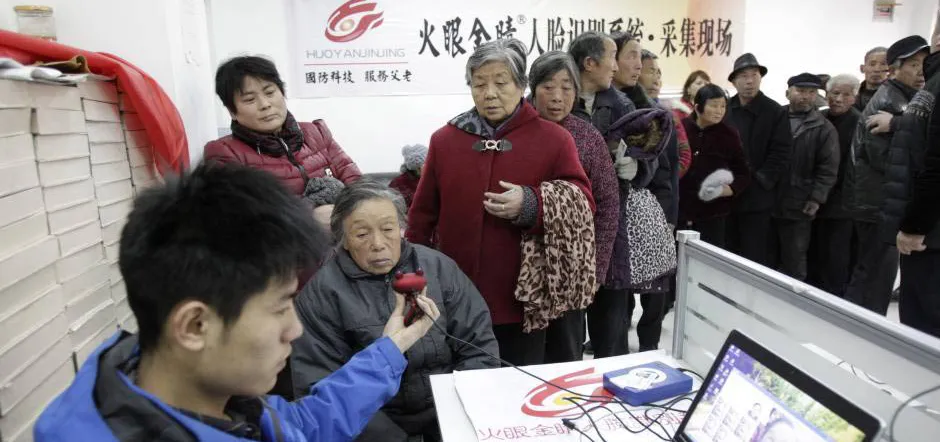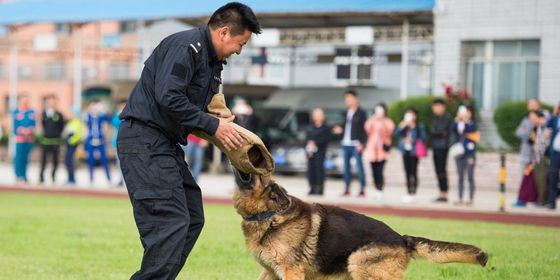The Chinese city where “Are you alive?” is not a philosophical question, but due diligence
Apart from the three basic philosophical questions (“Who am I?”, “Where did I come from?”, and “Where am I going?”), Chinese seniors may encounter another question—“Are you still alive?”—and be required to prove it.
Last week, Dahe Daily reported, residents of several communities in Zhengzhou city, Henan province, received a WeChat notice from the community office, informing them that, during the annual verification of pensioners from November 20 to 25, those unable to sign and put their fingerprints on the documents in person at the office must send a family member on their behalf with a photo of the pensioner holding that day’s newspaper. Only in this way can the pensioners’ family prove that Grandfather is still alive and therefore eligible for his money.
Eight out of 10 pensioners said they didn’t like this verification method (this is, incidentally, the same way that kidnappers photograph hostages in movies to prove they’re alive to family members). According to one staff member, however, a photo with the newspaper is the easiest way to verify at present, since it’s hardly possible for them to visit over 100 pensioners with such a busy workload and limited workforce.
Certificates, IDs and documents of all kinds have been an indispensable part of Chinese people’s life for centuries. The Paper cited from China’s E-government Yearbook (2015) that, “There are over 400 certificates and papers closely related to Chinese’s daily life and work, and over 103 of them are used commonly.” Some papers are quite weird and troublesome. For example, as one report summarized, to draw money from her deceased father’s passbook, a Ms. Zhou had to provide papers that prove a) the marriage status of her father, b) she is the only child of her father, and c) her grandparents who died 30 years ago really are dead. Meanwhile, because ID card number were changed from 15 figures to 18 figures nationwide in 2004, a Mr. Tao had to prove both his ID numbers were of the same person when he decided to transfer his hukou from Henan province to Beijing.
Instead of showing sympathy, however, most citizens supported the community office:
![]()
There is nothing wrong.

It’s fine. Why not?! It is more convenient for the old-aged who have trouble getting around. And, it’s impossible for the limited staff to visit all the households.
![]()
I can find nothing wrong with it. Is my outlook wrong?

The practice is good and flexible. Taking a photo is much better than carrying ill old people there to prove they are still alive.
Some netizens explained more plainly: There is much need to prevent pension and insurance fraud.

Due to formal pension frauds, now everyone has to go through such troubles.

I find it acceptable. What else could the civil affairs department do? There are so…many cases where families of the deceased continue to claim retirement benefits instead of de-registering the pension account.

Is there anything wrong? The insurance fraud has been industrialized!

Should I say that the media [that reported on the issue] knows too little? As I know, this practice has been going on for over 10 years to prevent families of deceased old people from cheating social insurance or retirement pension. If not strictly regulated, families can even go on cheating as long as ten years. And for old people who live in another city or have trouble getting around, it is much better to have them appear at the office in person.
These netizens make a point. In a 2012 report of Procuratorial Daily, a publication of the Supreme People’s Court, 50,000 people were found to have cheated over 140,000 RMB in old-age pension from 1998 to 2002, and 260,000 people cheated 600 million RMB from 2003 to 2007, citing data from the Ministry of Human Resources and Social Security (MOHRSS).
As for collective social insurance funds, 94.75 million, 118 million and 127 million RMB was found to have been fraudulently collected, respectively, in 2011, 2012 and 2013, with 760 million RMB in total cheated from 2002 to 2016, according to the MOHRSS.
Though most of the funds in those cases were later reclaimed , one can hardly imagine the efforts it may take, and as Procuratorial Daily commented, “Who knows how many more cheated funds were undiscovered?”
That didn’t stop people complaining, of course. Ms. Li, daughter of one pensioner, told Dahe Daily, “I understand the community office’s intention to prevent pension fraud, but such a photo disrespects old people. My mother feels like that she is required to pose as a prisoner.”
Some netizens doubt the effectiveness of the method, since any photo can simply be faked with Photoshop. Some propose to employ WeChat video or community volunteers to visit the elderly, to show more respect as well as enhance the effectiveness of verification. Still, no one can tell if those methods are more workable—with cheaters, where there’s a will, there’s a way.
Cover image from Chinanews.com












